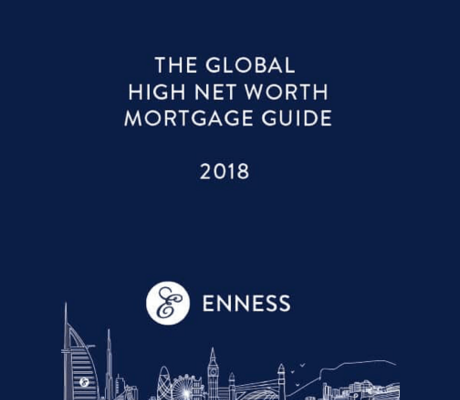Most mortgages are easy to find. A quick search on google will bring up plenty of sources – comparison sites, online and local and mass-market mortgage brokers, best buy tables, advice sites and of course many lenders themselves. This system works perfectly for 95% of potential mortgage borrowers and is accessible and efficient.
For the remaining few, however, this system often does not work at all well for them. For example, those with complex situations, high-value requirements, entrepreneurs, overseas residents and so on. For these borrowers, we use a considerable number of relatively unknown, private and off-grid mortgage lenders – we like to call these ‘secret mortgages’.
‘Secret mortgages’ don’t appear on best buy tables or comparison sites, and as they are highly specialist, many mortgage brokers never have any need to use them. They are individually negotiated, highly personalised and occasionally available by-invitation-only. Lending decisions are often based on the borrower’s net worth, background, occupation, family wealth – or a mixture of all these individual factors.
Here are some of the places where you can find these high net worth mortgages.
Private banks
There are the big branded private banks, but then there are the little-known private banks, which often fly under the radar. These lenders are genuinely private, ultra-discreet and very selective when it comes to new clients.
Borrowers will often need to be recommended or introduced through a trusted source. Clients are then typically required to commit to doing more business with the firm over the longer term. In return, the lender will take the time to understand the mortgage case and consider unusual, complicated or quirky circumstances.
At the same time, turnaround is fast because most of these banks are smaller than the well-known private lenders.
We work with a vast number of these banks – they are fantastic to deal with and provide perfectly catered solutions for even the most complex of situations. We often turn to these lenders with clients who are entrepreneurs, those who have sold businesses, or perhaps someone who has a big balance sheet but limited liquidity.
As an example, these lenders will offer loan to values (LTV) in the region of 60-65% with very competitive mortgage rates of around 1-2%.
Clients may have circumstances that fall outside of standard criteria.
As part of the deal, borrowers may be expected to pledge a certain level of assets under management (AUM) – from £100,000 to 30% of the loan for example– or agree to a longer-term business relationship with the bank. We often secure ‘dry mortgages’ without AUM.
International private banks
The appetite for very large mortgages will fall outside of the realm of many lenders. In these cases, Enness looks to its expansive network of international private banks.
These banks lend large sums at competitive prices and are especially suitable for international buyers. The wealthiest of clients, with international holdings, are readily accepted by these global players that see the opportunity to acquire new assets under management.
Borrowers get a polished service, dedicated support, get access to specialist advisers from tax to hedge fund lending and philanthropy, on top of leading interest rates and lending terms.
The global nature of the companies means they understand and are sympathetic to local customs across the world – perfect for a borrower with income streams from abroad. For example, this route would suit ultra-high net worth borrowers who have international-based wealth and are looking to buy a property outside of their home country.
These banks won’t usually consider loans for less than £10 million, and work with an LTV of up to 60-65%. Rates are again very competitive, coming in at about 1-2%. Of course, at this level, everything is negotiable and based on individual requirements.
Local building societies
For down to earth and highly flexible lending, regional building societies come into their own.
Occasionally mutuals are restricted or favour borrowing within their local area, but usually, they will consider cases from across the country. Many have carved out niches where they excel – such as intergenerational lending, development finance, high loan to value mortgages or loans for foreign nationals.
The application process can be slower than the bigger banks because of the manual underwriting involved in each individual case. There may also be a premium on the interest rate offered compared to their high street peers.
But these lenders work outside of restrictive ‘tick-box’ criteria to offer common-sense decisions which can provide highly effective solutions.
Building societies look deeply at a borrower’s position and make a personal lending decision. For example, these lenders will often accept more unusual employment and income from several different sources – including overseas.
They are receptive to ex-pats, and some will accept payment in foreign currencies.
Loan to values can be high – up to 85-90% LTV in some circumstances – however, loan sizes are capped and may not be available above £1-2m. Rates are competitive, but the lenders excel most through offering offbeat criteria.
Bridging/alternative lenders
For clients looking for financing beyond the ‘standard mortgage’, there is a league of specialist lenders that most borrowers have never heard of and can usually only be accessed through an experienced broker.
Money can be borrowed for practically any legal reason, so long as the loan can be secured against a property, either in the UK or internationally.
The reasons to use these lenders are infinite. A bridging loan may allow someone to buy a property before selling another or raise fast cash to pay a tax bill.
On the other hand, development finance provides investors with the funding needed to carry out property works. And in a marketplace where mainstream lenders are full to the brim with applications, clients may appreciate a specialist that can act fast to help secure an opportunity.
This market is the most complex, is ultra-fragmented, unregulated and difficult to navigate. The lenders range from private banks, newly formed ‘challenger banks’ through to specialist funds, hedge funds and even wealthy individuals. As a result, interest rates can vary wildly. As an example, short-term lending such as bridging loans are usually charged in the region of 0.65-0.9% per month. Interest can be rolled up and paid at the end of the term, which are often up to one or two years.
Specialist lenders will happily consider high net worth borrowers and can be particularly useful for property investors looking to build portfolios or increase value.
Very few of these mortgage examples will be found on best buy tables, mortgage comparison sites or through online or free mortgage brokers. The deals are hard to access and relationship-driven.
But through Enness, clients can tap into these lenders to find solutions to almost any financing problem.





